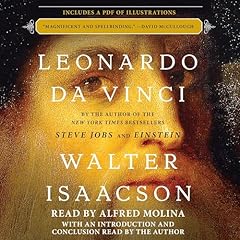
Galileo
And the Science Deniers
No se pudo agregar al carrito
Solo puedes tener X títulos en el carrito para realizar el pago.
Add to Cart failed.
Por favor prueba de nuevo más tarde
Error al Agregar a Lista de Deseos.
Por favor prueba de nuevo más tarde
Error al eliminar de la lista de deseos.
Por favor prueba de nuevo más tarde
Error al añadir a tu biblioteca
Por favor intenta de nuevo
Error al seguir el podcast
Intenta nuevamente
Error al dejar de seguir el podcast
Intenta nuevamente
$0.00 por los primeros 30 días
POR TIEMPO LIMITADO
Obtén 3 meses por US$0.99 al mes
La oferta termina el 16 de diciembre de 2025 11:59pm PT.
 Exclusivo para miembros Prime: ¿Nuevo en Audible? Obtén 2 audiolibros gratis con tu prueba.
Exclusivo para miembros Prime: ¿Nuevo en Audible? Obtén 2 audiolibros gratis con tu prueba.
Solo $0.99 al mes durante los primeros 3 meses de Audible Premium Plus.
1 bestseller o nuevo lanzamiento al mes, tuyo para siempre.
Escucha todo lo que quieras de entre miles de audiolibros, podcasts y Originals incluidos.
Se renueva automáticamente por US$14.95 al mes después de 3 meses. Cancela en cualquier momento.
Elige 1 audiolibro al mes de nuestra inigualable colección.
Escucha todo lo que quieras de entre miles de audiolibros, Originals y podcasts incluidos.
Accede a ofertas y descuentos exclusivos.
Premium Plus se renueva automáticamente por $14.95 al mes después de 30 días. Cancela en cualquier momento.
Compra ahora por $18.74
-
Narrado por:
-
Jonathan Davis
-
De:
-
Mario Livio
Galileo’s story may be more relevant today than ever before. At present, we face enormous crises—such as minimizing the dangers of climate change—because the science behind these threats is erroneously questioned or ignored. Galileo encountered this problem 400 years ago. His discoveries, based on careful observations and ingenious experiments, contradicted conventional wisdom and the teachings of the church at the time. Consequently, in a blatant assault on freedom of thought, his books were forbidden by church authorities.
Astrophysicist and bestselling author Mario Livio draws on his own scientific expertise and uses his “gifts as a great storyteller” (The Washington Post) to provide a “refreshing perspective” (Booklist) into how Galileo reached his bold new conclusions about the cosmos and the laws of nature. A freethinker who followed the evidence wherever it led him, Galileo was one of the most significant figures behind the scientific revolution. He believed that every educated person should know science as well as literature, and insisted on reaching the widest audience possible, publishing his books in Italian rather than Latin.
Galileo was put on trial with his life in the balance for refusing to renounce his scientific convictions. He remains a hero and inspiration to scientists and all of those who respect science—which, as Livio reminds us in this “admirably clear and concise” (The Times, London) book, remains threatened everyday.
Los oyentes también disfrutaron:




















Reseñas de la Crítica
"Jonathan Davis renders a solid narration of this scientific biography of Galileo. In it we hear the stirrings of today's scientific debates over topics such as climate change. The Italian scientist was cautious about promulgating some of his views, particularly about Earth not being the center of the universe, because of pressure from the Church. Science deniers, then as now, refused to accept fact-based interpretations of evidence. Davis's even, pleasant voice carries listeners along as they learn about Galileo's pioneering work in what would become the field of experimental physics."
Las personas que vieron esto también vieron:




Completely
Se ha producido un error. Vuelve a intentarlo dentro de unos minutos.
The endless struggle to circle wide and quiet around the obsticles to truth.
Se ha producido un error. Vuelve a intentarlo dentro de unos minutos.
Well-written
Se ha producido un error. Vuelve a intentarlo dentro de unos minutos.
struggled to get through this one
Se ha producido un error. Vuelve a intentarlo dentro de unos minutos.
Excellent
Se ha producido un error. Vuelve a intentarlo dentro de unos minutos.


